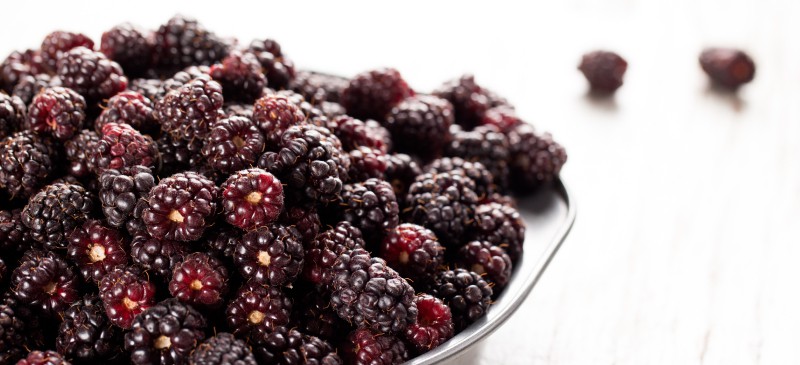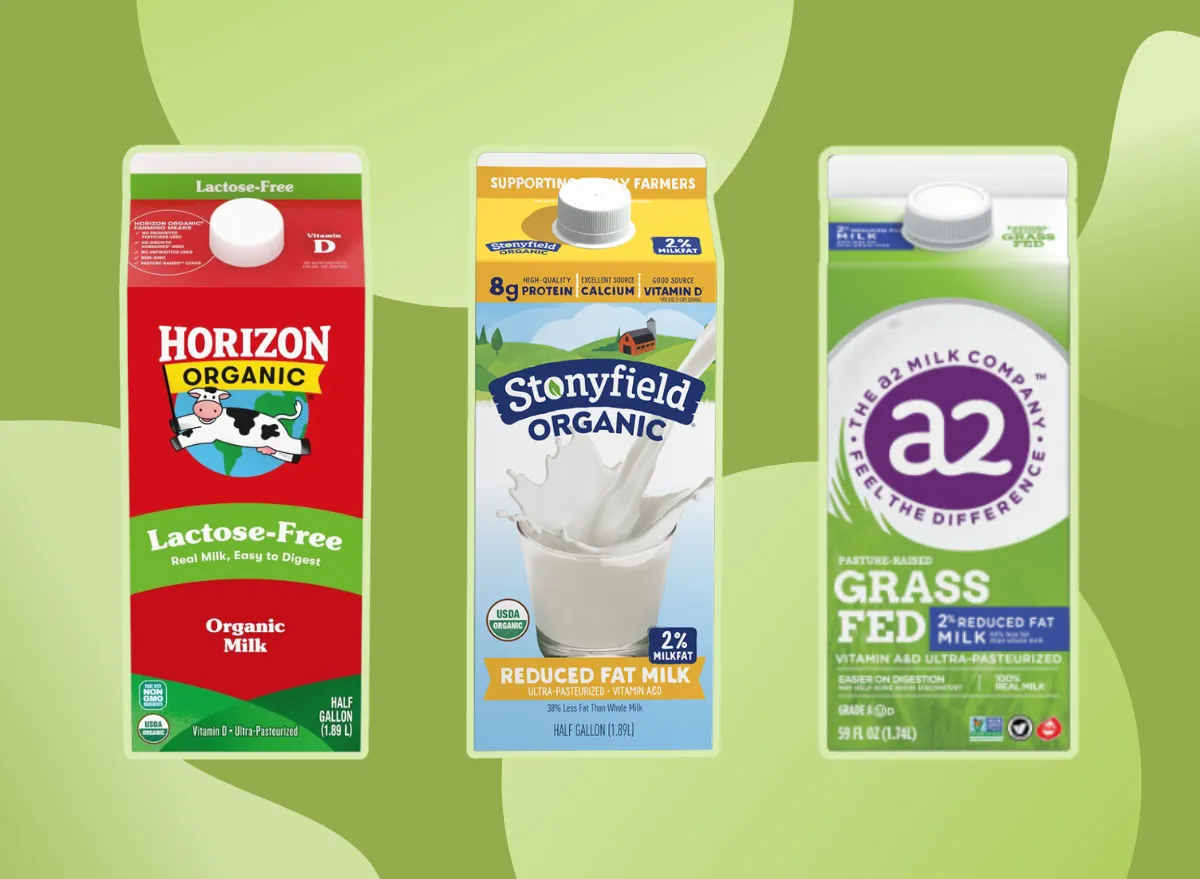
What do you get when you cross blackberries, raspberries and loganberries? The result is boysenberry — a deep purple berry that’s packed with health-promoting antioxidants and polyphenols.
Originating by experiment, these berries are sweeter and more tart than blackberries and can be used similarly in baked goods and other recipes. They are packed with health-promoting antioxidants and important nutrients, including fiber, folate, vitamin K and vitamin C.
Finding them fresh may be difficult, but frozen boysenberries are available. You also can grow your own at home.
What Is Boysenberry?
Boysenberry is a hybrid berry that’s believed to be a cross between blackberries, raspberries and loganberries. It’s a member of the family Rosaceae, belonging to the Rubus genus.
Although the plant is thought to have arisen by accident when a California farmer was experimenting with new varieties and crossing berry plants in the 1920s, boysenberry is valued today for its potential health benefits, especially those related to respiratory function. Today, the biggest producer and exporter of boysenberry is New Zealand, but it’s also grown in parts of Oregon and California.
Nutrition
Boysenberry nutrition is a good source of fiber and micronutrients, including manganese, folate, vitamin K and vitamin C. It contains powerful antioxidants, including flavonoids that help prevent oxidative damage to the body.
One cup (about 132 grams) of frozen boysenberries contains approximately:
- 66 calories
- 16.1 grams carbohydrates
- 1.5 grams protein
- 0.3 grams fat
- 7 grams fiber
- 0.7 milligrams manganese (36 percent DV)
- 83.1 micrograms folate (21 percent DV)
- 10.3 micrograms vitamin K (13 percent DV)
- 4.1 milligrams vitamin C (7 percent DV)
- 1.1 milligrams vitamin E (6 percent DV)
- 1.1 milligrams iron (6 percent DV)
- 21.1 milligrams magnesium (5 percent DV)
- 0.1 milligrams thiamine (5 percent DV)
- 1 milligram niacin (5 percent DV)
- 183 milligrams potassium (5 percent DV)
- 0.1 milligrams copper (5 percent DV)
- 0.1 milligrams vitamin B6 (4 percent DV)
- 35.6 milligrams calcium (4 percent DV)
- 35.6 milligrams phosphorus (4 percent DV)
Benefits
The health benefits of boysenberry come from the fruit’s impressive nutrition content, which includes beneficial polyphenols and micronutrients.
1. Promotes Lung Health
A 2016 study conducted on mice published in the American Journal of Physiology evaluated the lung function benefits from increased consumption of fruits high in polyphenols. Researchers found that regular boysenberry consumption has the potential to moderate chronic lung fibrosis in asthma and other chronic pulmonary diseases.
A 2021 study published in Food Science and Nutrition found that drinking boysenberry and apple juice concentrate promoted a shift toward an anti-inflammatory environment within the lungs, and it reduced immune cell infiltration and tissue damage.
2. Supports Cardiovascular Health
A 2014 study found that polyphenol content in boysenberry juice decreased diastolic blood pressure after four weeks. The results also suggest that the nutrients found in the fruit improve endothelial function, which allows for the flow of substances and fluid in and out of tissue.
Another study suggests that the anthocyanins in boysenberry inhibit endothelial dysfunction and contribute to the maintenance of healthy artery homeostasis.
3. Provides Antioxidants
Boysenberry is rich in antioxidants, including flavonoids like anthocyanins. Anthocyanins have been shown in studies to prevent diseases associated with oxidative stress, including cardiovascular and neurodegenerative diseases. The flavonoids also benefit gut health by promoting a healthy balance of bacteria.
A 2015 study published in the Journal of Agricultural and Food Chemistry found that boysenberry seed oil had the strongest oxygen radical absorbance capacity compared to red raspberry, blueberry and marionberry seed oils.
4. Good Source of Fiber
The dietary fiber found in berries like boysenberry have a positive impact on cardiovascular health, digestive health and more. High-fiber foods promote regularity and enhance digestive health, while helping to stabilize blood sugar levels and improve heart health by decreasing LDL cholesterol and promoting blood flow.
5. Provides Vitamin K
Vitamin K foods promote blood sugar control, strong bones and better brain function. A cup of boysenberries contains about 13 percent of your daily value of vitamin K, making it a good source of the important micronutrient.
READ RELATED: What Is Xanthan Gum? Is It Healthy?
Data shows that vitamin K deficiency is not uncommon, so getting enough of the nutrient in your daily foods is necessary.
How to Grow and Use (Recipes)
The taste of boysenberry has been likened to that of blackberries but with an extra tang and sweetness. They are thin-skinned and juicy when ripe, a bit bigger than your standard blackberries.
The downside of these unique berries is that they only last a few days after picking, so it’s difficult for commercial growers to get them in grocery stores. For that reason, you’re more likely to see them frozen or canned, but you also have the option of growing your own at home.
You can begin growing your own by using a cutting, dormant root or plant from a local nursery. It takes two years before your plant makes berries.
The first year, only leaves are produced during the summer. The next season, the berries grow on the plant’s green stems.
Boysenberry plants need at least six to eight hours of sunlight per day. They prefer well-draining soil and can be fertilized every year with store-bought or DIY compost.
The plants should remain moist, but be sure that the soil can drain so they’re not soaked and susceptible to rot.
If you live in cooler temperatures, you need to cover your plants during the winter once the temperatures drop below freezing. You can use a thick layer of straw to cover the base of the plants.
Once the plants go dormant, they must be pruned. This allows the plant’s energy to focus on producing new canes and berries the next season.
Wait until the berries are a dark purple color and easy to pull off the stem. Harvest season is typically mid-May to mid-July.
Once you have your hands on some boysenberries, it’s time to eat them raw or use them in recipes. Because the fresh berries only last a few days, you may choose to freeze them after harvest.
Simply wash them, lay them out on a baking sheet and put them in the freezer. Once they’re frozen, add them to an airtight bag or container.
Now you can use them in smoothies, a boysenberry pie or tart, or berry-based baked goods.
Any recipe that calls for blackberries or raspberries also works well with boysenberry. Here are some ideas to get you started:
Risks and Side Effects
Some people may experience mild allergic reactions after consuming boysenberry. If you have swelling; itching of the mouth, lips or hands; or stomach discomfort after eating these berries, discontinue use immediately.
People susceptible to kidney stones should minimize their consumption of berries and some other fruits because the oxalates may increase the production of stones.
Conclusion
- Boysenberry is a hybrid berry that’s believed to be a cross between blackberries, raspberries and loganberries. It’s a member of the family Rosaceae, belonging to the Rubus genus.
- Similar to blackberries, boysenberries have a sweet and tart taste. They can be added to smoothies, pies, tarts, salads and baked goods.
- Boysenberry is rich in antioxidants, fiber, vitamin K, folate, manganese, vitamin C and more. These berries promote cardiovascular and digestive health, reduce oxidative stress, and have been found to benefit lung health.
Source: Dr. Axe | Nutrition






